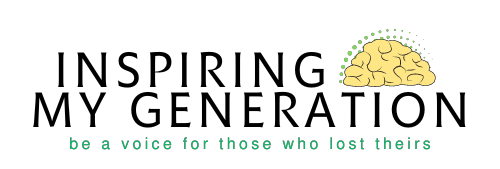I Was Treated Like a Case, Not a Person—Here’s Why Psychiatric Care Must Change
In this week’s episode of Normalize The Conversation, I had the honor of speaking with Dr. David Susman—a licensed clinical psychologist, passionate advocate, and longtime leader in psychiatric care. Together, we explored a powerful and necessary shift happening in the mental health field: the move from traditional psychiatric treatment to a recovery-model approach.
This conversation was personal. Because I’ve lived through this system that Dr. Susman is helping to change—and I know what it feels like to be treated as a case, not a person. I also know what’s possible when we start to believe in recovery.
When You Feel Like a Liability, Not a Life
When I was hospitalized, the environment felt cold and clinical—aged walls, no natural light, minimal connection. What hurt more than the surroundings was the feeling of being reduced to a case. I wasn’t seen as someone with a future. I was a risk they had to mitigate, a brain to stabilize for liability reasons.
I remember sitting in that hospital bed, questioning if anyone actually saw me, not the suicide attempt, the human who was struggling to find a reason to keep going.
There was no conversation about my goals. No one told me recovery was possible. No one even hinted that I could go on to build a meaningful life. It felt dehumanizing and deeply isolating.
In those moments, I didn’t just feel alone, I felt invisible. And when you’re invisible, it’s hard to believe that your life matters.
And that’s why this conversation is so important.
Centering Hope and Humanity
Dr. Susman shared how his hospital began embracing the recovery model—one rooted in empowerment, person-centered care, and peer support. It’s not just about controlling symptoms. It’s about helping people heal and grow.
Even small changes, like replacing outdated terms such as “case manager” with “recovery coach,” can radically reshape how people feel. As Dr. Susman shared, someone once told him, “I’m not a case, and I don’t need to be managed.” That stuck with me—it’s exactly how I felt and sometimes still feel. I’m a human, and at the core of my recovery journey, I want to feel like one.
When someone says, “I’m your recovery coach,” it sounds like they’re going to walk beside you, show you the playbook, teach you strategies, and guide you through the storm. It says, “I believe in your ability to get through this.” That’s powerful.
Why This Matters
The immediate experience from the moment someone enters inpatient psychiatric care is critical. It’s often one of the most vulnerable moments in their life. How we respond to matters.
At my lowest point, what I needed wasn’t a psychiatrist to write me a prescription without getting to know me or what I was experiencing. I needed someone to look me in the eyes and say, “You’re not broken. You’re still here. And that means something.”
We can either:
Re-traumatize them through sterile environments, rigid systems, and disempowering language,
orEmpower them with compassion, support, and the belief that recovery is real.
Peer support plays a huge role here. Dr. Susman and I both emphasized how vital it is to connect with someone who’s been through it. When you're in crisis, it’s hard to believe things will get better, but I can tell you from first-hand experience, seeing someone who has survived and is thriving makes that hope tangible. It’s a physical representation of possibility, a manifestation of the future.
The Future of Psychiatric Care Is Human
The most important takeaway I found in this conversation was that healing doesn’t begin with medication or observation. It begins when someone feels seen, heard, and valued. It begins when we move from fear-based models of “safety” to hope-based models of recovery.
We need environments that reflect light, language that empowers, and systems that walk with people instead of labeling them.
The day I began to believe in my recovery was the day I finally looked at myself and saw a person, not a problem. That changed everything. Imagine if we could be that for someone else. That’s what I hope this conversation is.
I believe in that future. And I believe we can build it together.
Listen to the full episode now to hear more of Dr. Susman’s insights and to imagine a world where psychiatric care truly supports healing and growth.

